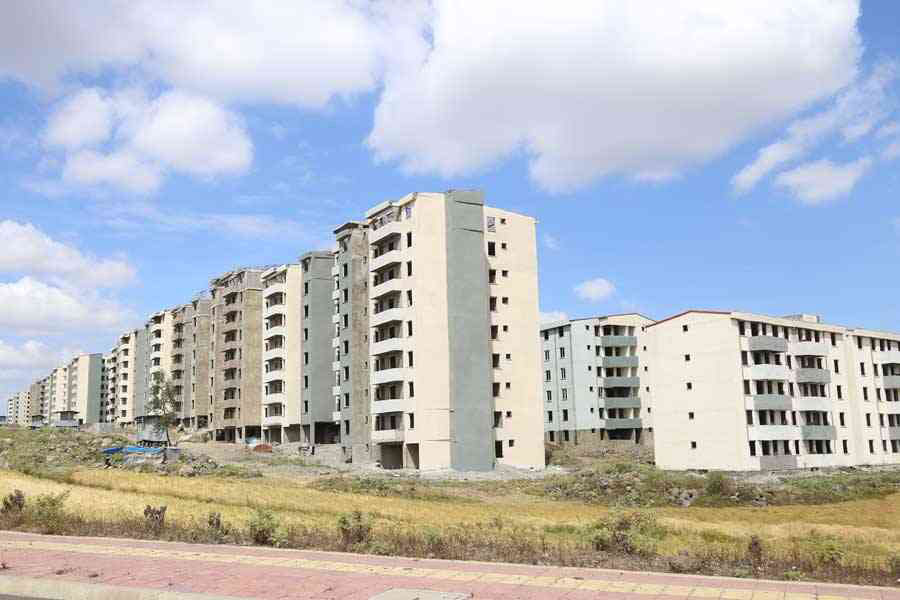
Apr 13 , 2019
By Haben Mehari
While Addis Abeba and Nairobi have much in common, the latter boasts a more affordable housing market. It is all thanks to a mortgage market, which Ethiopia should imitate, writes Haben Mehari (haben.mehari@aiesec.net), an entrepreneur and a graduate student at Addis Abeba University.
Nairobi and Addis Abeba have a great deal in common. Found in the same region, they are both headquarters of a plethora of international organisations. Addis Abeba is headquarters to the African Union and hosts 28 resident UN agencies including the United Nations Economic Commission on Africa. At the same time Nairobi hosts many multinational corporations, especially in the services sector, looking to grow their presence on the continent with the likes of Coca-Cola, Toyota, Standard Chartered Bank and General Electric. But that similarity ends when it comes to housing.
One would think that due to the large influx of expatriates in Nairobi, house rental prices would be higher or on par with Addis Abeba. But rental prices in the Ethiopian capital are 87.63pc higher than in Kenya, according to Numbeo, a crowd-sourced global database of consumer prices. Average monthly net salary in Nairobi is 354.4 dollars, while it is almost half as much in Addis Abeba, and local currency purchasing power in the former is two-thirds lower than in Nairobi.
Access to housing finance is key to making housing affordable. In the developed world, housing finance is synonymous with mortgage lending and represents one of the key building blocks of the banking sector. In less developed countries, mortgages are accessed by as little as one percent of the population. In Africa, the poor have invested most in their housing, and nearly 80pc of housing is self-financed.
Of the countries in Africa, South Africa has the highest mortgage penetration, currently at almost a third. Access to finance is fuelled by low lending rates, at 10pc, and the presence of a secondary mortgage market.
The reality in Addis Abeba could not be starker. Recently, the Commercial Bank of Ethiopia introduced a diaspora mortgage scheme with an equity contribution ranging from 20pc to 50pc and with an interest rate ranging from 8.5pc to 10.5pc with a maximum term of two decades. In the case of Zemen Bank, one would need to deposit a fifth of the price of the house then save another equal amount over a period of six to twelve months. It is then that one can get a loan for 60pc of the house's total price, which has to be repaid within seven years.
In the case of Kenya, their banks also provide home mortgages. Standard Chartered offers interest rates that go as low as 12.2pc, with an option for the comprehensive 105pc mortgage financing solution with repayments spread across a quarter of a century. Commercial Bank of Africa offers average mortgage rates at 12.9pc with flexible repayment periods of up to half a century. Kenya Commercial Bank offers mortgage interest rates of 13.3pc and all one has to show is proof of income and proof that they can meet 10pc of the financing.
These deals are incomparable with what the Ethiopian banks are providing. But it is still not enough for Kenya. The National Treasury announced that it would partner with the World Bank to set up the Kenyan Mortgage Refinancing Company (KMRC) following in the footsteps of Tanzania, Nigeria and Egypt.
KMRC, which is a public-private partnership owned by the government, commercial banks and financial co-operatives, is a non-bank financial institution only meant to provide long-term funding to mortgage lenders to enable borrowing as low as a five percent interest rate. This is in line with the government’s initiative of providing 500,000 homes a year until 2022 a reality.
With the disaster that has been the Integrated Housing Development program In Addis Abeba, Ethiopia is overdue for a different approach to improving housing. The Kenyan way is the way to go if we want to make housing in Ethiopia affordable, which would fit in nicely with this administration’s openness to the private sector.
PUBLISHED ON
Apr 13,2019 [ VOL
20 , NO
989]


Viewpoints | May 18,2019

Commentaries | Nov 21,2020

Fortune News | Feb 22,2020

Viewpoints | Dec 29,2018

Sunday with Eden | Apr 06,2024

Fortune News | Sep 07,2025

Viewpoints | Dec 19,2018

My Opinion | Jul 24,2021

Fortune News | Mar 11,2023

Commentaries | Dec 10,2018

Photo Gallery | 174569 Views | May 06,2019

Photo Gallery | 164797 Views | Apr 26,2019

Photo Gallery | 154987 Views | Oct 06,2021

My Opinion | 136693 Views | Aug 14,2021
Editorial | Oct 11,2025

Dec 22 , 2024 . By TIZITA SHEWAFERAW
Charged with transforming colossal state-owned enterprises into modern and competitiv...

Aug 18 , 2024 . By AKSAH ITALO
Although predictable Yonas Zerihun's job in the ride-hailing service is not immune to...

Jul 28 , 2024 . By TIZITA SHEWAFERAW
Unhabitual, perhaps too many, Samuel Gebreyohannes, 38, used to occasionally enjoy a couple of beers at breakfast. However, he recently swit...

Jul 13 , 2024 . By AKSAH ITALO
Investors who rely on tractors, trucks, and field vehicles for commuting, transporting commodities, and f...

Oct 11 , 2025
Ladislas Farago, a roving Associated Press (AP) correspondent, arrived in Ethiopia in...

Oct 4 , 2025
Eyob Tekalegn (PhD) had been in the Governor's chair for only weeks when, on Septembe...

Sep 27 , 2025
Four years into an experiment with “shock therapy” in education, the national moo...

Sep 20 , 2025
Getachew Reda's return to the national stage was always going to stir attention. Once...

Oct 12 , 2025
Tomato prices in Addis Abeba have surged to unprecedented levels, with retail stands charging between 85 Br and 140 Br a kilo, nearly triple...

Oct 12 , 2025 . By BEZAWIT HULUAGER
A sweeping change in the vehicle licensing system has tilted the scales in favour of electric vehicle (EV...

A simmering dispute between the legal profession and the federal government is nearing a breaking point,...

Oct 12 , 2025 . By NAHOM AYELE
A violent storm that ripped through the flower belt of Bishoftu (Debreziet), 45Km east of the capital, in...